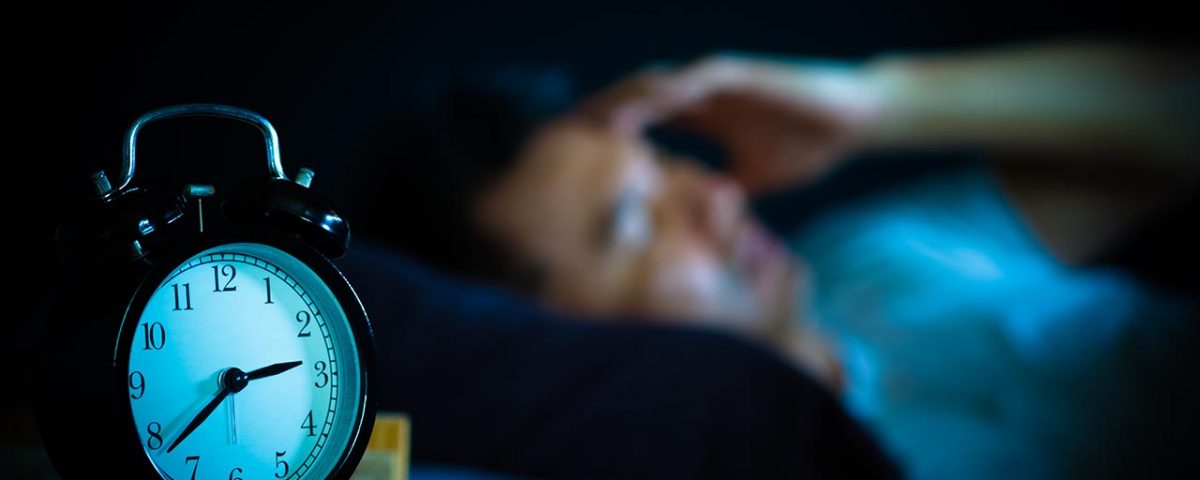Everyone has those nights where, no matter what they do, they just cannot seem to fall and stay asleep. While the occasional night of tossing and turning is mostly harmless, for some people, this is the norm. Many alcoholics and people in recovery from alcohol struggle with these sleepless nights regularly. Banyan Treatment Centers Heartland is here to help you learn how to deal with insomnia after quitting alcohol, why this reaction occurs, and how long the recovery process may take. No matter how long the road ahead may seem, we will stand by you every step of the way.
The Connection Between Alcohol & Insomnia
The relationship between alcohol and insomnia is complicated and multifaceted. Anywhere between 25 and 72% of people in alcohol treatment programs, like those at our Illinois drug rehab, experience some kind of sleep problem.1 In some cases, people may have insomnia and use alcohol as a sleep aid. Other times, insomnia may be brought on or made worse by frequent alcohol use.
Not only can trouble sleeping after quitting alcohol predate treatment, but often, it may get worse during our alcohol detox program. A common side effect of withdrawal, insomnia is often a result of the body trying to adjust back to a normal sleep cycle. In some cases, insomnia in alcohol recovery may persist for months or even years after first getting sober.
Why Does Alcohol Withdrawal Cause Insomnia?
For those with an alcohol dependency, the process of alcohol withdrawal can be difficult. Insomnia is among the most prevalent and bothersome symptoms that people encounter during this time. This phenomenon arises from several interconnected physiological and psychological factors, including:
- Neurochemical imbalance: Chronic alcohol consumption throws off the neurotransmitter balance in the brain, leading to a neurochemical imbalance. Alcohol causes an excess of the neurotransmitter known as GABA (gamma-aminobutyric acid), which is known to enhance relaxation. The brain rewires when alcohol intake is abruptly reduced, resulting in greater excitability and trouble falling asleep.
- Hypersensitivity of the central nervous system (CNS): Alcohol's depressive effects cause the central nervous system (CNS) to become hypersensitive, which raises its excitability. Withdrawal can cause an enhanced state of awareness that can lead to restlessness, racing thoughts, and overall hyperactivity, making it difficult to achieve a good night's sleep.
- Disruption of circadian rhythms: Frequent alcohol use can interfere with the body's natural clock, which controls the cycle of sleep and wakefulness. Alcohol consumption causes the body's circadian clock to reset, which can result in sleep issues like insomnia.
- Stress response: The body experiences a considerable amount of physiological stress when alcohol consumption is halted. The body reacts by releasing stress hormones like cortisol and adrenaline, which are linked to insomnia and can cause symptoms like hypervigilance and trouble falling asleep.
Psychological variables can also make insomnia worse during this time, such as anxiety and concern about withdrawal symptoms. It's crucial to remember that the degree and length of sleeplessness experienced during alcohol withdrawal can vary greatly according to a person's level of dependence, general health, and any co-occurring mental health issues. Seeking professional assistance and support if you or someone you love is experiencing alcoholism is essential for a secure and effective recovery.
How to Deal With Alcohol Withdrawal Insomnia
Managing insomnia in alcohol recovery isn’t just about getting sleep. It is about avoiding relapse. Persistent sleep problems after withdrawal are connected to a greater risk of alcohol relapse.1 To stay on track, it is important to learn how to deal with insomnia after quitting alcohol. These tips may be able to help.
Follow a Sleep Schedule
Because your body and brain are trying to adjust to life without alcohol, the more you stick to a routine, the better. During residential alcohol recovery at our Heartland treatment center, your schedule is mostly already in place for you, but when you are on your own, it is important to try to keep a similar schedule. If you are going to bed at different hours every night, your body will struggle to regulate its circadian rhythm. It makes this transition easier and faster so that you can hopefully decrease the severity of alcohol withdrawal, insomnia, or other sleep disturbances in alcohol recovery.
Create a Routine
One of the best ways to deal with alcohol withdrawal insomnia is to create a good bedtime routine. Your body and brain may need time to wind down before falling asleep. If you follow a regular and relaxing bedtime routine, your mind will start to make the connection between these activities and sleep. This connection can help you fall asleep faster.
Avoid Napping
After a night of tossing and turning, it is natural to want to take a cat nap to catch up on some z’s, but doing so can interfere with your regular sleep cycle. You are trying to get your body back into a normal sleep schedule, but naps during the day can throw off this schedule and make you less tired at night when you should be asleep.
Get Help
If it has been months and you are still struggling to understand how to deal with alcohol insomnia or other severe sleep disturbances in recovery, it may be time to get help. You may have a sleep disorder that needs its own attention. A sleep doctor or specialist may be able to help you overcome these problems once and for all.
When Does Insomnia Go Away After Quitting Drinking?
The duration of trouble sleeping after quitting alcohol can vary widely depending on individual factors such as the extent of alcohol dependence, overall health, and any co-existing medical or mental health conditions. After stopping alcohol usage, people frequently have insomnia for a few days to many weeks. Acute insomnia, the term used to describe this early stage of sleep disturbance, is frequently associated with alcohol withdrawal symptoms. The body is attempting to reset its neurotransmitter levels and restore its normal sleep-wake cycle during this period.
Insomnia may last longer for certain people than for others, especially for those who have been strongly dependent on alcohol for a long time. This condition, which can linger for months, is referred to as post-acute withdrawal syndrome (PAWS). It's crucial to remember that there are ways to lessen the intensity and duration of insomnia, such as creating a regular sleep schedule, practicing relaxation techniques, and getting help from medical professionals or addiction specialists. Most people will see a gradual improvement in their sleep patterns and longer, more restful sleep sessions as their bodies continue to repair and rebalance. In case insomnia increases over time or persists, it is imperative to seek professional counsel and treat the condition with patience.
Learning how to deal with insomnia after quitting alcohol may take some time. Everyone is different, so you may need to find what works best for you.
If you can’t sleep without alcohol and have yet to get help for a drinking problem or another substance use disorder, stop waiting. At Banyan, our Illinois rehabs want to help. Call us today at 888-280-4763.
Sources:
- New in Health- Vaping Rises Among Teens
- SAMHSA - Treating Sleep Problems of People in Recovery From Substance Use Disorders








